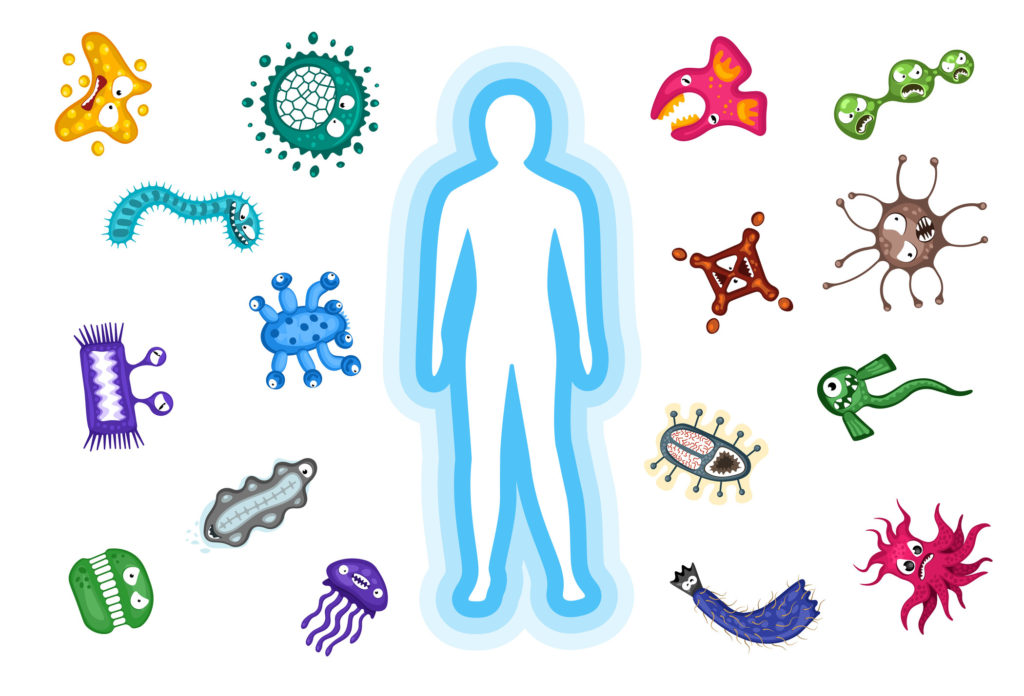
Do you wonder why you constantly hear that you need to boost your immune system, especially during this coronavirus crisis? It’s critical for everyone to have the strongest immunity possible because your body’s immune system (it runs throughout your entire body) protects you from pathogens such as viruses, bacteria, and infections. Eating healthy food that include large amounts of fruits and vegetables, getting a good night’s rest (7-8 hours), maintaining a healthy weight, don’t smoke, drink alcohol in moderation (or not at all), frequent hand washing, and exercise can keep your immune system strong.
Even though our survival depends on our immune system, there are nearly 24 million Americans whose immune system is attacking them. They have an autoimmune disease (ADs) which is when your immune system mistakenly attacks healthy cells, tissue, and organs. Autoimmune diseases can attack almost any part of your body and some may affect more than one part of the body. They are in a group of more than 80 chronic illnesses. The cause of autoimmune diseases is not known and there are no cures, but some are treated with immunosuppressive medication and corticosteroids which helps to reduce the immune system’s hyperactivity. Research shows that race, genetics and environmental factors are thought to play a role in the development of some autoimmune diseases.
For reasons unknown, more women develop autoimmune diseases than men, and African-American, Hispanic-American, and Native-American women are at a higher risk for some autoimmune diseases.

These diseases are the leading causes of death in women under 65 years. In women, it is believed that hormones may play a role in them acquiring ADs at a higher rate than men.
After cancer and heart disease, autoimmune diseases are the third common category of disease in the United States.
There are some ADs that African Americans develop at a high rate such as Lupus, Multiple Sclerosis, Vitiligo, Crohn’s and Alopecia Areata. These are just a few of the autoimmune diseases that affect African-American.
Vitiligo
Vitiligo occurs when skin begins to lose its pigmentation in blotches. Sometimes it can affect the inside of the mouth and hair. This disease happens when the cells that produce melanin start to die.
“My vitiligo presented itself about 15 years ago on my legs, says Charla Draper, Chicago Food Expert, Writer, Food Stylist. “I didn’t know what an autoimmune disease was until my vitiligo diagnosis. Doctors were very candid about the challenges of treating it or arresting the progression. All I know is that I was losing the melanin in my skin. Initially, the color loss was gradual, but as time wore on, larger areas of body began to change. Now, the majority of my pigmentation is gone and I’ve come to terms with that. It has been a long journey, but it is important that I remain healthy and in order to do that I must maintain a strong immune system. I watch my stress, eat foods that are high in nutrients and antioxidants, I attend an exercise class twice a week, and I try to get plenty of sleep.”
Lupus
Lupus is one of those ADs that affect African-American women more often compared to American women of European decent, usually presenting symptoms between the ages of 15 and 44 years. Some indicators of lupus include inflammation, swelling, and damage to the joints, skin, kidneys, blood, heart, and lungs.
Crohn’s Disease
Crohn’s is one of the inflammatory bowel diseases that causes inflammation and ulcers in the gastrointestinal (GI) tract.
For the past six years, Melodie Narain Blackwell has been dealing with the affects of Crohn’s disease. Initially, she had various symptoms and agonizing pain that doctors could not identify, including bleeding from her colon. After constantly being misdiagnosed, she become seriously ill and required surgery. After her second surgery, she finally received a correct diagnosis. Now, in her late 30s, Melodie is an advocate for Crohn’s and inflammatory bowel diseases (IBD).
She educates the minority community about this often mis-diagnosed illness, especially with women of color.
Research shows that millions of African Americans are diagnosed with Crohn’s, however, African-Americans have been underrepresented in most large Crohn's disease trials. Melodie understands how important being healthy is to her survival. Having a strong immune system, getting her rest, exercise, and her relationship with God are the keys to her successful existence with an autoimmune disease.
If you have an autoimmune disease that's considered an underlying medical condition so you must be extra vigilant about following the guidelines for coronavirus protection and mantain a healthy immune system.
Make sure you eat foods that will boost your immune system, especially during this time of coronavirus.








